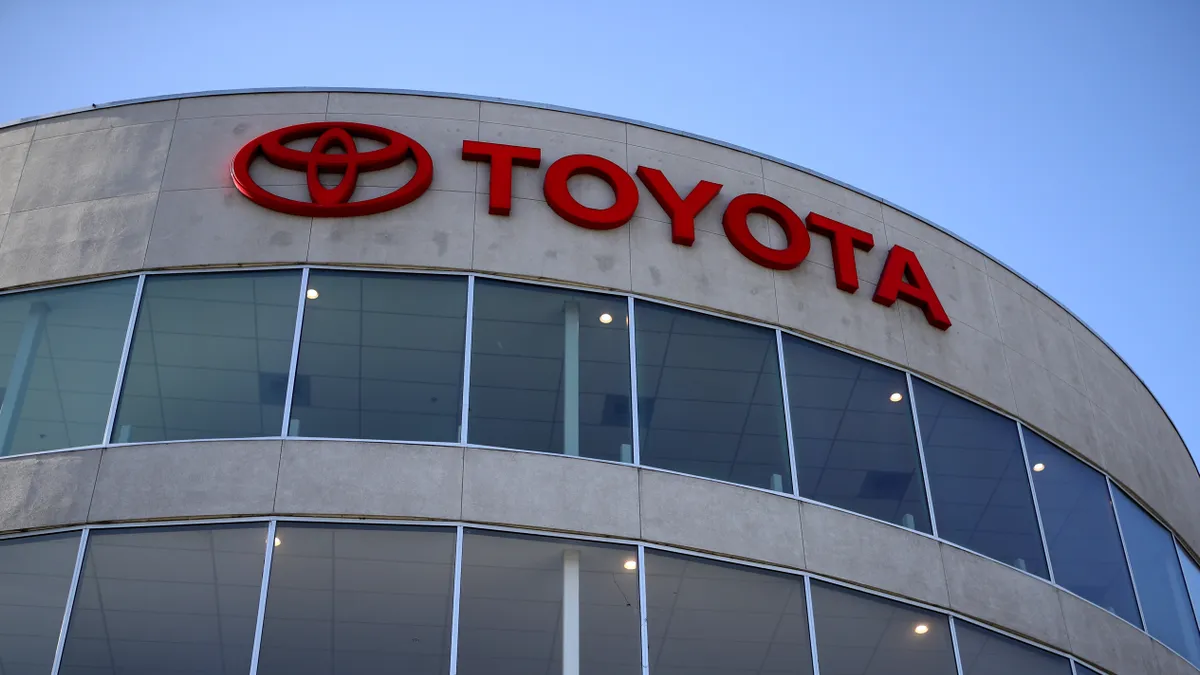Dive Brief:
- Toyota will introduce rolling pauses on 16 production lines across 10 Japan-based plants as it faces parts supply shortages from the lockdown in Shanghai, the automaker announced on Tuesday.
- The company revised its June global production forecast to about 850,000 vehicles, "tens of thousands" fewer than planned due to semiconductor shortages, according to the press release.
- The rolling pauses across half of Toyota's Japan production lines will impact manufacturing on popular car models such as Toyota Corolla, Prius and RAV4, with each stoppage lasting up to five days.
Dive Insight:
While Shanghai has begun easing COVID-19 restrictions in some parts of the city, the vehicle production pauses show the ongoing knock-on effects of the lockdown on global manufacturers.
Toyota's announcement was an expansion on news from earlier this month, when the company said it would temporarily suspend production on 14 lines across eight plants and cut its May production forecast by 50,000 vehicles due to supply problems caused by the lockdown in Shanghai.
Despite the production pause, the company did not revise its overall production plans for the fiscal year, with the intent to produce nearly 10 million vehicles in fiscal year 2023. "We will continue to make every effort possible to deliver as many vehicles to our customers at the earliest date," Toyota said in a statement.
The effects are likely to be felt by U.S. customers who may have to wait longer to get their Toyota vehicles or face fewer choices in the market, said Ian Riches, vice president for the global automotive practice at Strategy Analytics.
The halt to Toyota's manufacturing was the result of compounding supply chain headaches hitting the global automotive industry, including a semiconductor shortage and the nearly two-months long COVID-19 lockdown in Shanghai, Riches said.
Shanghai's ongoing lockdown has ensnared manufacturers across the automotive supply chain as they struggle to operate plants in China and get needed supplies out of the country.
Ford, which has 50 Tier 1 suppliers in China, has leaned on premium freight and expedited shipping lines in an attempt to mitigate supply chain disruptions and get shipments out.
Authorities have announced life in the metropolis will "return to normal" on June 1, but executives and observers have noted that more trouble could come if other cities face the same fate as Shanghai, bringing renewed supply chain snarls to companies that source from China. Beijing continues to battle an ongoing outbreak, while the port city of Tianjin has seen cases numbers crop-up in recent days.
The threat of fresh lockdowns in the country makes it difficult to estimate the length of production delays facing companies that source critical components from China, Riches said.
"It's almost impossible to say how long delays could last, unfortunately," he said. "As long as China continues its zero-COVID policy, we will see sporadic lockdowns and ongoing disruptions in the foreseeable future."














